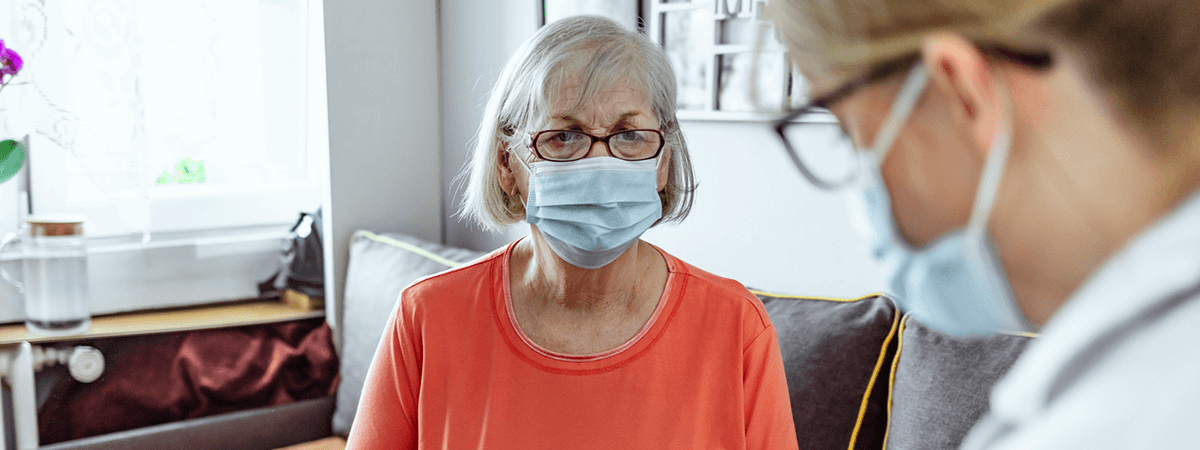If you or a loved one lives with cancer, you may have increased concerns and questions on how the COVID-19 (coronavirus) affects you.
We have gathered up-to-date, evidence-based resources for people affected by cancer to support you. This includes information for people living with cancer, health professionals and researchers.
COVID-19 vaccines and cancer
Vaccination for people with cancer
Being vaccinated against COVID-19:
- reduces your risk of catching COVID-19
- reduces your risk of severe illness if you catch COVID-19.
For people newly diagnosed with cancer:
- It’s strongly recommended you receive your COVID–19 vaccine as soon as possible, if you haven’t already.
- If you haven’t received a COVID-19 vaccine, your cancer specialist can advise about the best timing for you based on your treatment plan.
Vaccination if you're immunocompromised
Some people who have been diagnosed with cancer and are undergoing cancer treatments can have weaker immune systems. People with compromised immune systems as a side effect of cancer treatments, or from the cancer itself, may be at increased risk of contracting COVID-19 and increased risk of more severe infection.
Vaccination reduces the risk of having severe illness and needing to go to hospital as a result of getting COVID-19.
Vaccination may be less effective in people who are immunocompromised, so they may be recommended to have more than the usual number of doses of the COVID-19 vaccine to increase their protection.
Talk to your specialist about whether you are immunocompromised and may need additional doses of the COVID-19 vaccine.
For more information see: COVID-19 vaccination decision guide for people with immunocompromise
Vaccination for families, friends and carers
We recommend that those living in the same household as a person with cancer, as well as caregivers or other close contacts of a person with cancer, should also get vaccinated against COVID-19.
More information on COVID-19 vaccines for people affected by cancer
- COVID-19 vaccines
- COVID-19 vaccination in NSW
- SerOzNET Study – an important clinical study to better understand the safety and efficacy of the COVID-19 vaccines in people with cancer.
COVID-19 and cancer treatment
If you're currently having cancer treatment, here are some practical ways to reduce your risk of exposure to COVID-19:

Get in touch with your cancer care team to see if you can have any consultations by phone or video call.

Talk to your doctor or cancer care team about the times during your treatment when you may be at the highest risk of infection and plan your activities accordingly.

Get in touch with your cancer care team to get specific advice around your individual risk.

Everyone should practise good hygiene and social distancing to protect against infection, particularly people with cancer and their family, friends and carers.
General COVID-19 information
What is COVID-19?
Coronaviruses are a family of viruses that cause respiratory infections. These can vary from the common cold to more serious diseases.
COVID-19 is a disease caused by a form of coronavirus.
What are the symptoms of COVID-19?
COVID-19 affects people in different ways. COVID-19 symptoms can range from mild illness to pneumonia. You can also be infected with COVID-19 and experience no symptoms—this is called being 'asymptomatic'.
If you have COVID-19, you may experience symptoms.
- Keep up to date with the symptoms of COVID-19.
It's important you get tested immediately even if you have only the mildest of these symptoms.
Experiencing symptoms, have exposure concerns, or tested positive?
Contact your doctor or cancer care team immediately for advice if you:
- have COVID-19 symptoms
- have been in contact with someone who has tested positive for COVID-19
- have tested positive for COVID-19.
More information and resources on COVID-19
- Current status of COVID-19 in NSW - NSW Health
- Information and news about COVID-19 vaccines – Department of Health (Australia)
- Coronavirus (COVID-19) - Healthdirect
- Advice for the public about COVID-19 – World Health Organization
COVID-19 and cancer for health professionals and researchers
- NSW Cancer Services lessons from the COVID-19 pandemic (PDF) - Cancer Institute NSW
- COVID-19 resources - eviQ
- Cancer care in the time of COVID-19: A conceptual framework - Cancer Australia
- The impact of COVID-19 on cancer services - Cancer Australia
- COVID-19 Recovery: Implications for cancer care - Cancer Australia
- SerOzNET Study - Cancer Australia
